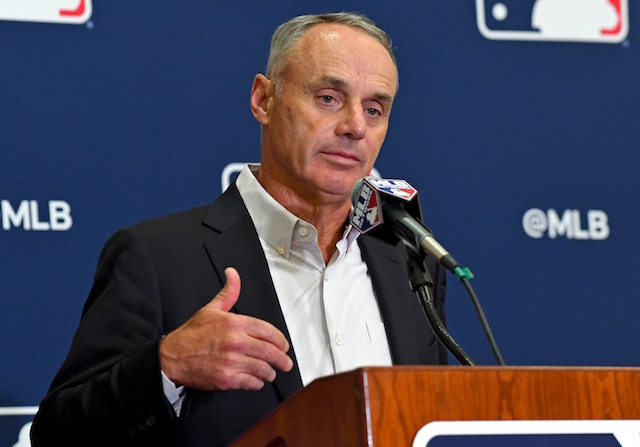Despite last-ditch efforts to reach an agreement, the Major League Baseball Players Association rejected the 60-game proposal they received from team owners last week, forcing commissioner Rob Manfred to implement a season of his choosing.
Manfred has since moved forward with a schedule of 60 games after the league and MLBPA finalized a July 1 report date for Spring Training 2.0, and agreed to health and safety protocols for the season.
For MLB, it marks the end of a weeks-long dispute between team owners and players — first over an economic plan, and later, the length of a regular season. While this is hardly the outcome both sides wanted, it at least ensures some form of a season will be played this summer.
Some around the industry see the situation differently. They believe the inability to strike a deal together, especially during a pandemic, leaves a stain on the sport.
One person connected to MLB, speaking anonymously, feels that failed negotiations between team owners and the union could have a long-term negative effect on the game, via Ken Rosenthal and Evan Drellich of The Athletic:
Said a league source: “At the end of the day, it’s not the greatest thing for the game.”
With the current CBA set to expire at the end of the 2021 season, there are concerns that the ongoing bad blood between MLB and the Players Association will carry over into the next round of talks.
Such could have an evener harsher effect on baseball, and perhaps lead to a potential work stoppage two years down the road.
For now, the focus remains on completing a 2020 campaign in the safest way possible. Camps this time around will be held at home ballparks rather than respective facilities in Arizona or Florida due to recent coronavirus (COVID-19) outbreaks.
As for Opening Day, July 23 appears to be the earliest date in which regular-season action will begin.
Have you subscribed to our YouTube channel? It’s the best way to watch player interviews, exclusive coverage from events, participate in our shows, and more!






